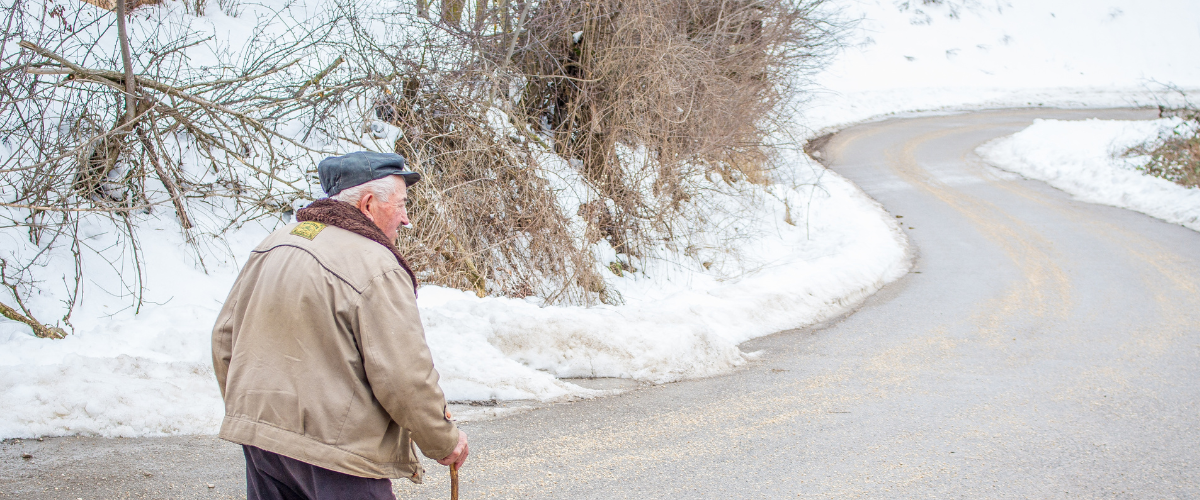The harsh cold and snowy conditions of winter can be quite dangerous for the elderly. Seniors are more likely to fall, but they also have a weaker immune system, leaving them more susceptible to the flu and even pneumonia.
To assist seniors in preparing for a safer and healthier winter season, here are some winter safety tips for seniors.
Table of Contents
Toggle1. Be prepared for the weather
Wear loose-fitting layers if the senior needs to go outside on a chilly day. The trapped air between the layers keeps you warm. Don’t forget to accessorize with a scarf and a cap. If the senior’s head and neck are left uncovered, they will lose a lot of heat. Put on snow boots and a waterproof jacket. If the elders’ clothing becomes wet, replace it immediately.
Senior home care providers are qualified to dress the elderly in clothing that will provide them with the most heat and protection from the cold.
2. Keep up the COVID-19 safety procedures
Continue to wash hands and clean seniors’ homes on a regular basis to avoid the spread of illness, especially during cold and flu season. Winter weakens the immune systems of the elderly, making them vulnerable. When they are with other people, they should wear a face mask to reduce their risk. Keep hand sanitizer nearby at all times, and put on additional personal protective equipment, such as gloves. To prevent the spread, keep a social gap between yourself and your loved ones. COVID-19 will be present in December 2022, so keep the elderly protected.
A live-in caregiver will be aware of all senior winter safety precautions to take in order to reduce the danger of COVID-19 at home.
3. Prevent accidents in the snow
Be aware of fall prevention techniques as the winter weather makes it easy to slip and fall, especially when it’s icy and snowy. Shoveling snow is a difficult activity that places an undue burden on the heart, especially for elderly people who may already be suffering from heart disease. Seniors with osteoporosis or balance issues are also at risk. Always consult with a healthcare expert before choosing whether shoveling snow or working outside is safe for them. If not, contact a family member or hire a live-in caregiver to help with snow removal, salting ice walkways, and other winter maintenance jobs outside.
Senior home care agencies in Ontario provide live-in caregivers to help elders follow these outdoor winter safety tips.
4. Travel carefully
If you are a senior caretaker, make sure your vehicle is repaired and prepared for winter conditions. The brakes, wipers, fluids, headlights, and taillights of the car should all be in good working order. If the senior and caregiver become separated on the road, carrying snacks, blankets, lamps, and additional batteries in the car is essential. These will provide warmth in the cold weather.
5. Winterize the house
Make sure the windows and doors aren’t enabling heat to escape from the house. Consider applying weatherstripping or caulking to keep cool air out. The roof should be sturdy, and there should be no obstacles in the gutters. Remove any storm-related dead trees or foliage that could endanger pedestrians. Invite the seniors’ loved ones and friends to pay them a visit over the winter. For example, if there is a power outage, have the senior stay with a loved one. If indoor fireplaces, gas and wood stoves, and gas appliances are not properly maintained, vented, and operated, they may also leak deadly levels of carbon monoxide. Check them out before using them for the first time this winter.
6. Remain warm indoors
Seniors do not need to be outside in the cold for long periods of time. It’s important to stay warm and comfortable inside and out of the cold. Set the thermostat to 18°C or higher. Wear socks and pajamas and wrap a blanket around their legs on cold days. Use extra covers if necessary while wearing long underwear or warm pajamas to bed.
7. Make a list of prescriptions
Staying warm may be difficult for seniors who have conditions such as thyroid disease or diabetes. Medication can also affect a senior’s ability to regulate temperature and keep warn. These include both over-the-counter medicines like cold treatments and prescription medications. The winter season is a good time to talk to the senior’s doctor about any concerns they may have with the medications they are currently taking. Make sure they have enough medication on hand to last at least a week. An in-home caregiver is able to go out and help refill their prescription even on the coldest winter days.
8. Be aware of symptoms of hypothermia and how to avoid it
Having a dangerously low body temperature might cause hypothermia. A body temperature below 35°C can lead to a heart attack, liver damage, and more. Being in an extremely cold environment or being outside can both cause hypothermia. The following are signs of hypothermia:
- Chilly hands and feet
- Floater or enlarged face
- Light skin
- Shivering
- Slurred words or speaking that is slower than usual
- Sleepiness
- Being irritated or perplexed
- Having difficulty walking, moving slowly, or being clumsy
- Jerky, stiff movements of the arms or legs
- Sluggish heartbeat
- Shallow, sluggish breathing
- Passing out or becoming unconscious
If you see any of these cautionary signs, contact emergency services straight once. The person providing live-in care is qualified to monitor these symptoms. The caregiver will immediately call emergency services if a symptom appears.
Want to learn more?
ConsidraCare’s live-in caregivers are trained to offer professional support and companionship to seniors. Please reach out to us at wecare@considracare.com or call us at 1-855-410-7971 to arrange care for a loved one.
Maryam is a leading writer at ConsidraCare, specializing in senior care. Her well-researched articles are widely recognized for guiding families through the complexities of caring for loved ones, establishing her as a trusted and authoritative voice in the field.


